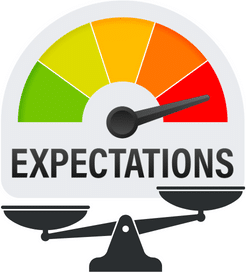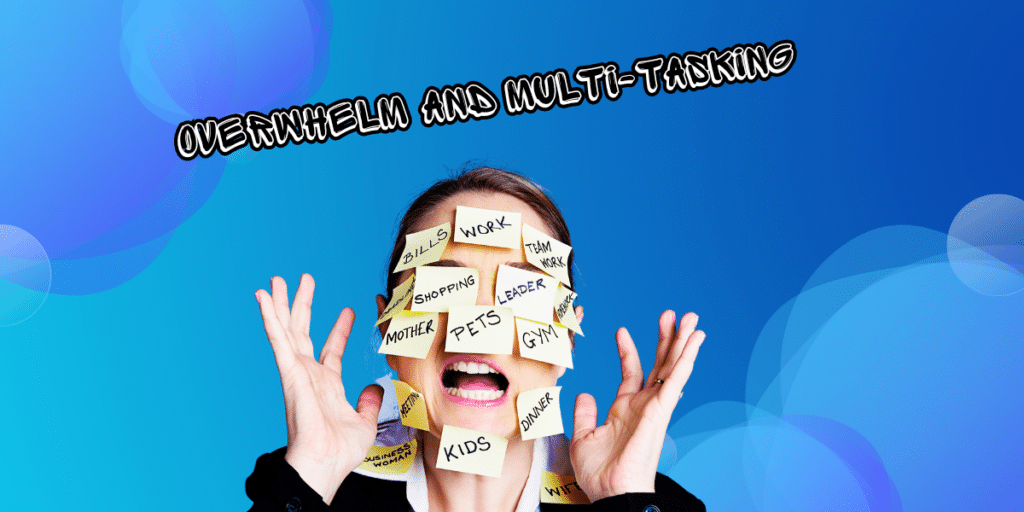Why Do I Have No Patience?: Identify What’s Testing Your Patience and How to Beat It!
Picture yourself in a traffic jam on a scorching day. The AC isn’t doing much, and the same songs keep playing repeatedly on the radio. You move a tiny bit and then stop, only to see more cars ahead, not moving. You start to feel annoyed, and your hands clench the steering wheel tight. Now, imagine if this wasn’t just occasionally. What if every little delay, each surprise, and anything someone says that you weren’t ready for made you just as upset as this traffic? That’s the reality for many who grapple with impatience.
Think of patience as a unique ability you can improve, not just something you’re born with. When we’re not patient, we can start to feel stressed – leading to more mix-ups and fights with others. But here’s some excellent news: just like learning to shoot hoops or to paint, you can get better at patience. It’s all about understanding what makes you impatient and practicing how to deal with it. This way, you can handle life’s tough spots more smoothly. In this post, we’ll find out what makes you impatient and give you tips to stay calm.
Quick Quiz: What’s Testing Your Patience?
You may be wondering “Why do I have no patience?”. Well, we need to know what makes us impatient before we can fix it. Just like knowing why there’s a traffic jam can make us less upset, figuring out what bothers us helps a lot. This quiz is like a mirror. It shows us the times when our patience is low. By recognizing these moments, we lay the foundation for building stronger patience muscles. Let’s discover what’s genuinely testing your patience!
5 Triggers that test your patience
Congratulations on completing our quiz! You’ve taken an important step toward understanding the unique triggers that test your patience. You might be asking yourself, ‘What’s next? How do I cultivate more patience in my life?’ Don’t worry; we’ve got you covered. Below, you’ll find targeted advice and practical strategies tailored to your “patience” profile. Explore these actionable tips to enhance your patience and navigate life’s challenges with a newfound calm.
1. Unmet Expectations

We often expect things to go a certain way. When they don’t, we get impatient and stressed. Research in psychology has found a strong connection between our expectations and our emotional reactions to outcomes (Harvey & Harris, 2010). When our expectations are not fulfilled, we may experience frustration (Harvey & Harris, 2010). Frustration is a negative emotional state that arises when we encounter obstacles or barriers that prevent us from achieving our goals (Harvey & Harris, 2010).

Balancing Expectations: Key Tips for A Patient Mindset
- For the Zen Master: Keep getting better at changing plans when you need to. Remember, learning and growing are more important than sticking strictly to a plan. Consider mentoring others on how to handle change with grace.
- For The Balanced Responder: Practice adjusting your expectations. Acknowledge when they are not in line with reality. Use affirmations like “I adapt and overcome” to build mental flexibility.
- For the Quick Reactor: Work on setting more realistic expectations by breaking down goals into manageable steps. Tackle overwhelm by celebrating small victories along the way.
2. Overwhelm & Multitasking

We often try to do many things at once because everything seems urgent. But this can make us lose our cool. Researchers at Stanford University found out that doing just one thing at a time is better. Trying to do too much can make us do worse at our tasks and stress us out.

Single-Task Focus: Overwhelm-Reducing Techniques
- For the Zen Master: You’re doing great with time management. Keep refining your techniques and share your strategies with others who might benefit from your approach.
- For the Balanced Responder: Implement the Pomodoro Technique as a starting point. Additionally, practice mindfulness during your breaks to clear your mind and reset your focus.
- For the Quick Reactor: Prioritize single-tasking. Keep working on one thing at a time. Pick the biggest task and focus on it until you’re done or have made a lot of progress. Then go to the next one. This will help you do better work and be more patient.
3. Interpersonal Conflicts

Miscommunication and differing viewpoints are common in any relationship, whether personal or professional.
The way we handle disagreements has a significant impact on relationships. Research has consistently shown that conflict management behavior plays a crucial role in various types of relationships, including romantic relationships, marital relationships, and workplace relationships.
These studies confirm that the way we deal with disagreements matters a lot for happy relationships. So, it’s essential to learn good ways to talk to each other. This helps us handle differences without getting impatient.

Conflict Resolution: Building Patience Through Communication
- For the Zen Master: Keep working on your patience by really listening and showing you understand when you talk to people. This can make your relationships better. Continue cultivating patience by practicing active listening and validation in your conversations, which can further enhance your relationships.
- For the Balanced Responder: Use the ‘pause-phrase’ method when you talk. It helps you stop and think. After that, look at what people need and feel. This can help you understand them better. It also helps you solve problems in a good way. Here’s how it works:
- Pause: When you feel the conversation is getting tense, the first step is to mentally pause your immediate reaction. This prevents knee-jerk responses that could escalate the situation.
- Phrase: Use a pre-planned phrase that signals to the other person and yourself that you need a moment to process before responding. This phrase should be neutral and designed to show that you are listening and want to understand the other’s point of view.
- Some examples of pause phrases might be:
- “Let me think about that for a second.”
- “I see your point. Give me a moment to reflect on this.”
- “Let me make sure I understand what you’re saying.”
- For the Quick Reactor: Work on listening with empathy. Really try to hear what others are saying. Before you answer, make sure you understand their view. This can stop many arguments from getting worse.
4. External Pressures & Societal Norms

Society often pushes us towards immediacy—the faster, the better. The pressure to keep up can be exhausting and severely test our patience. Social media makes us want fast answers. A research article found quick messages can make us less patient. We expect quick replies and get upset if we don’t get them.
Finding ways to manage the expectations of others and your own patience levels is crucial in today’s fast-paced world.

Navigating Pressures: Patience in a Fast-Paced World
- For the Zen Master: Maintain your sense of self by regularly reviewing your long-term goals and aligning your daily actions. Your independence from societal pressure is an asset.
- For the Balanced Responder: Learn to say “no” to demands that don’t align with your values or priorities. Practice selective engagement with external stimuli, like emails or social media.
- For the Quick Reactor: Establish and maintain firm boundaries around your time and energy. Engage in activities that reinforce your values, such as volunteering or hobbies, to keep societal pressures at bay.
5. Personal Perfectionism

The self-imposed pressure to be perfect is a common trigger for impatience. Perfectionists often set high standards for themselves, and when they fail to meet these standards, it can result in significant stress.

Perfectionism and Patience: Finding the Balance
- For the Zen Master: Keep embracing a balanced view of your achievements. Your realistic approach to goals is healthy; continue to share this approach with others who struggle with perfectionism.
- For the Balanced Responder: When you catch yourself fixating on perfection, take a step back to evaluate the importance of the task at hand. Will this matter in a week, a month, or a year? Adjust your effort accordingly.
- For the Quick Reactor: Set incremental ‘good enough’ benchmarks. Celebrate reaching these points as victories. Incorporate relaxation techniques, like deep breathing or meditation, when you notice stress from perfectionism creeping in.
Patience is a virtue that can be developed over time, and you’re well on your way. Whether you’re a Zen Master, a Balanced Responder, or a Quick Reactor, the strategies provided here can help you maintain your cool and build resilience. Reflect on these tips regularly, and don’t hesitate to explore each area more deeply. Every challenge is an opportunity to enhance your patience. With continued practice, you’ll find that you can handle life’s stresses with greater ease and confidence. Keep on this path, and you’ll be amazed at how far you can go.



